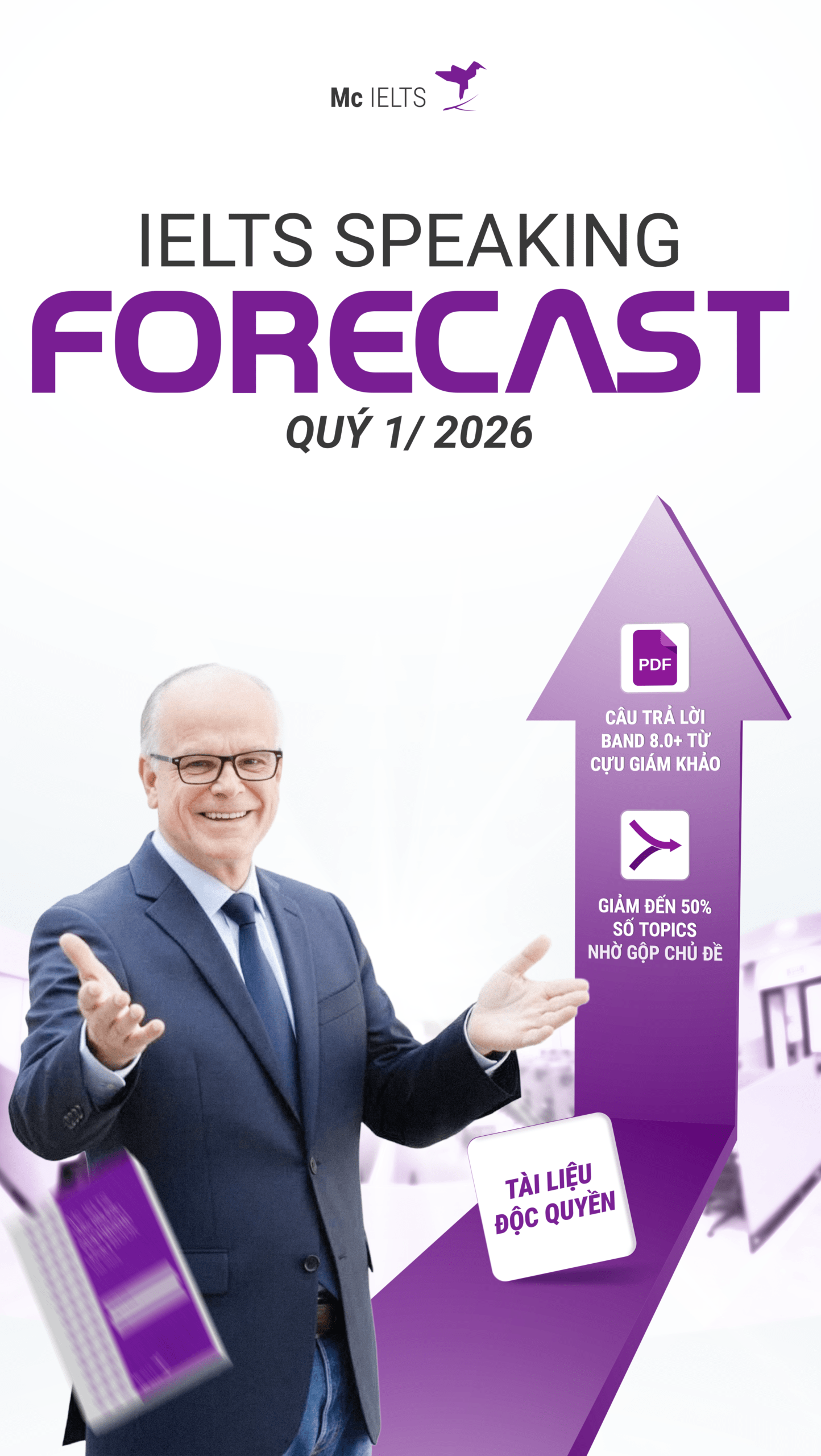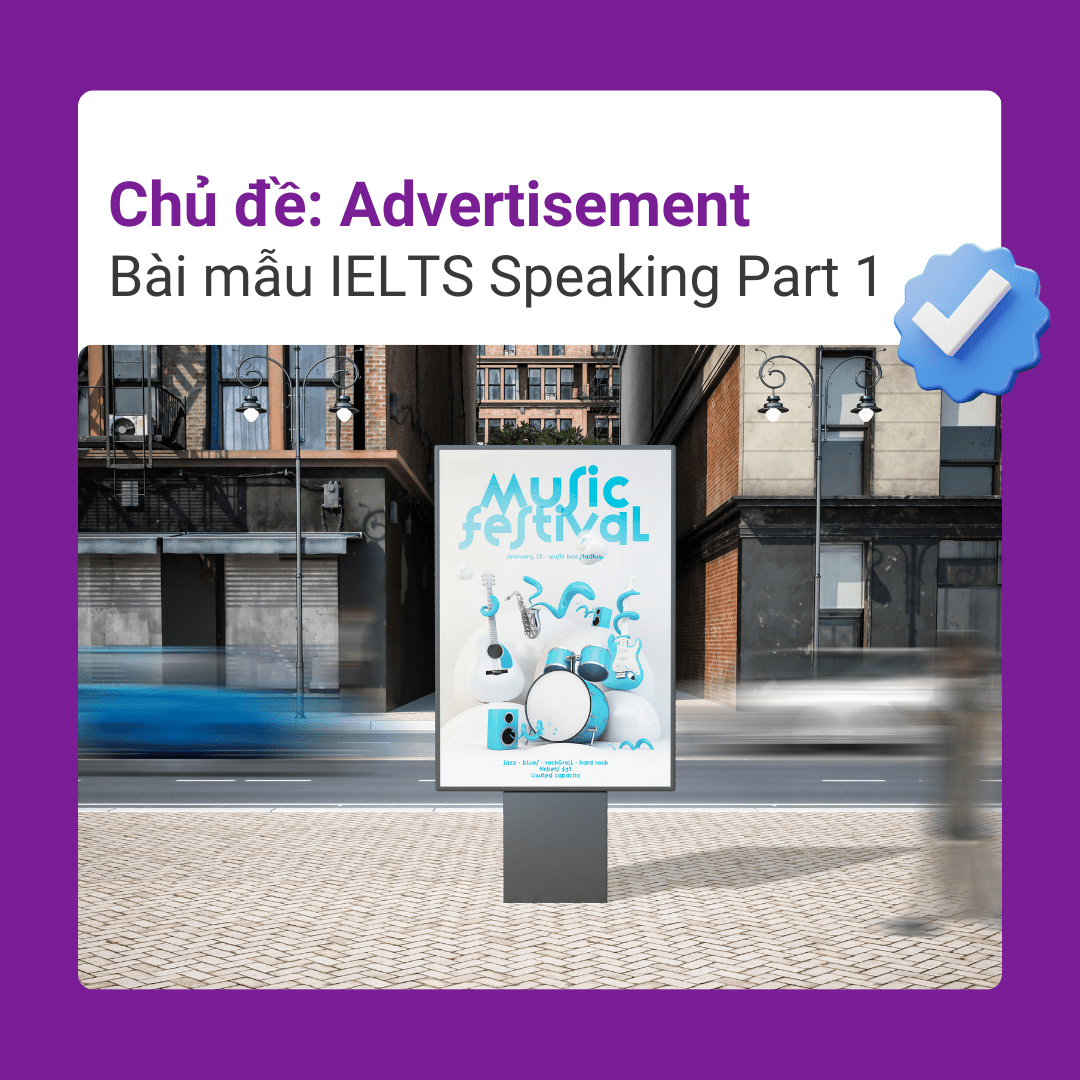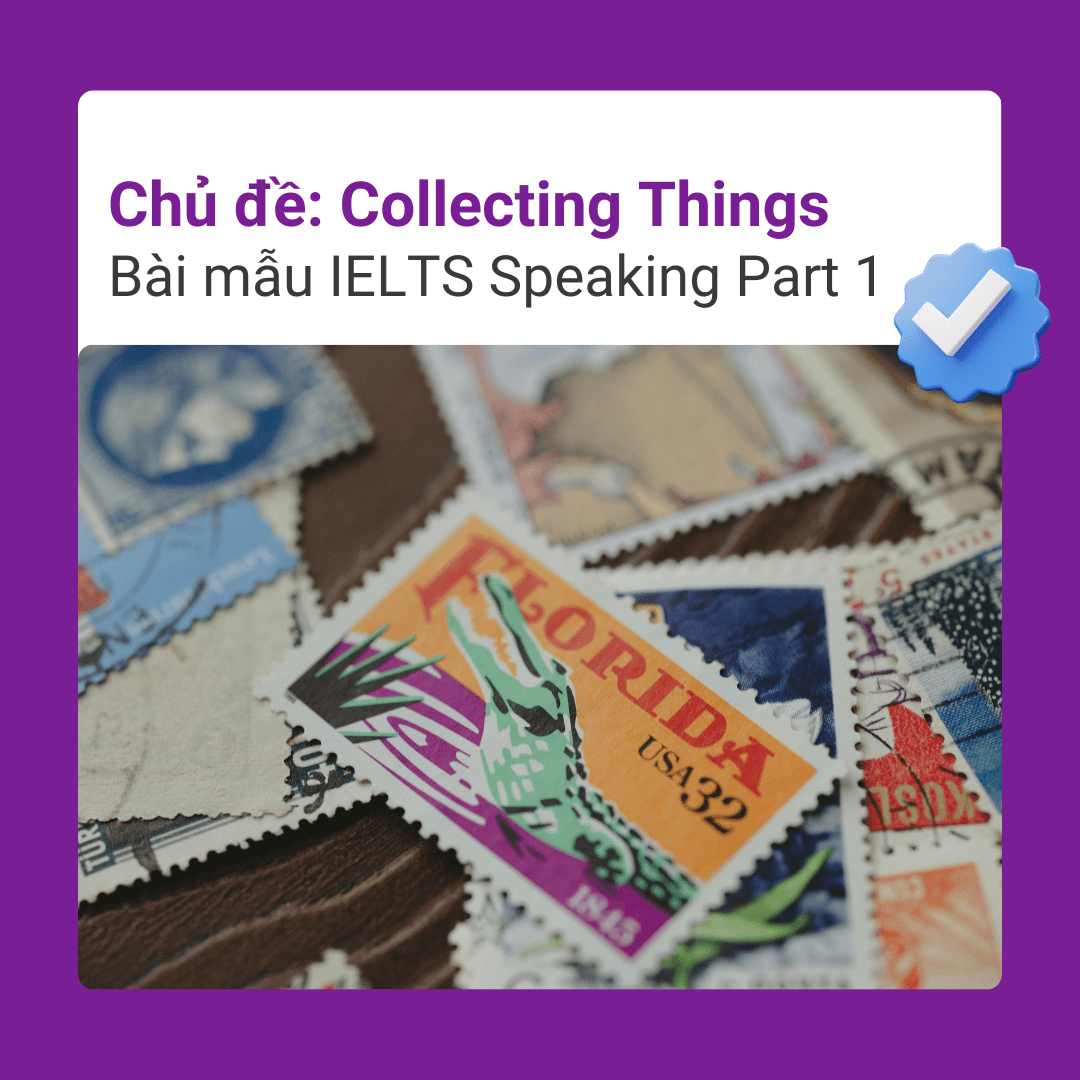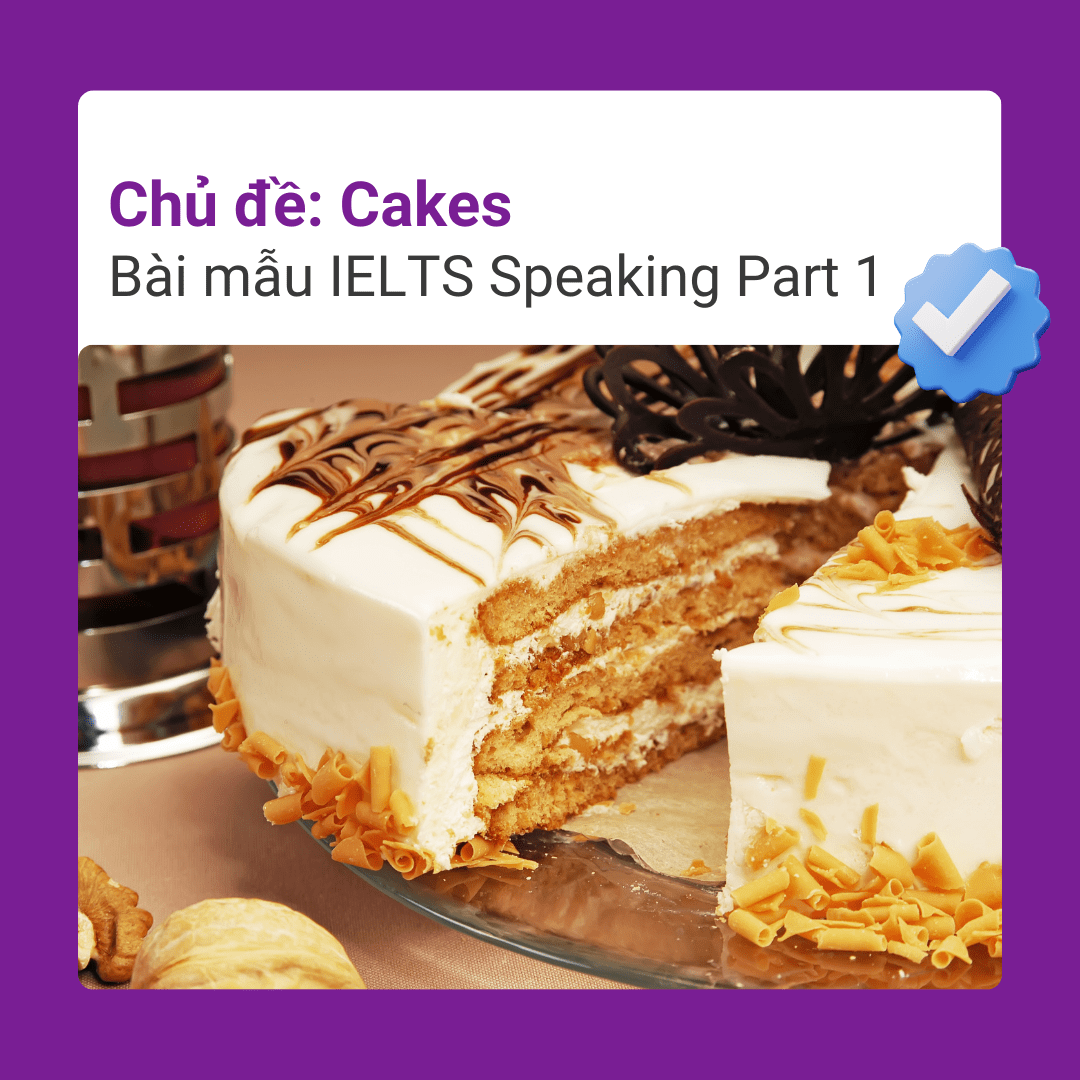IELTS Speaking Part 2 & 3: An Important Rule in Your School or Workplace
 12/02/2025
12/02/2025
 Tác giả : Phong Tran
Tác giả : Phong Tran

IELTS Speaking Part 2 & 3: An Important Rule in Your School or Workplace
Hướng dẫn trả lời IELTS Speaking Part 2 (Part 2 Answer Guide)
| An Important Rule in Your School or Workplace
You should say:
|
Answer 1
One important rule in the educational institute where I teach is the strict policy against plagiarism. This rule emphasizes the importance of originality and integrity in academic work. According to this policy, students must submit their own work, and any form of copying or unauthorized assistance is strictly prohibited.
If a student is found to have plagiarized, the consequences are quite severe. They might receive a failing grade for the assignment, or in extreme cases, face suspension. This strict enforcement ensures that students understand the seriousness of the matter.
I believe this rule is crucial because it upholds academic integrity. It teaches students the value of original thought and hard work, which are essential skills not only in academics but also in their future professional lives. Adhering to this rule fosters a culture of honesty and respect for intellectual property.
Personally, I feel very positive about this rule. It challenges students to think critically and creatively, and it prepares them for the real world, where ethical practices are expected and valued. It’s a rule that not only maintains academic standards but also contributes to the development of responsible and ethical individuals.
Giải nghĩa từ vựng:
Plagiarism (Noun)
Định nghĩa: Đạo văn.
Example: She was caught committing plagiarism in her final essay.
Prohibited (Adjective)
Định nghĩa: Bị cấm, không được phép.
Example: Smoking is prohibited in all areas of the building.
Suspension (Noun)
Định nghĩa: Sự đình chỉ tạm thời từ trường học hoặc công việc.
Example: The player faced a suspension for violating the team’s rules.
Integrity (Noun)
Định nghĩa: Tính chất trung thực.
Example: He is a man of great integrity.
Ethical (Adjective)
Định nghĩa: Liên quan đến nguyên tắc đúng đắn về đạo đức.
Example: The company is known for its ethical business practices.
Intellectual Property (Noun)
Định nghĩa: Sở hữu trí tuệ, ý tưởng hoặc sáng tạo của một cá nhân hoặc tổ chức.
Example: Patents protect intellectual property.
Answer 2
In my workplace, an important rule that we strictly adhere to is punctuality. This rule mandates that all employees must arrive on time and adhere to the schedules of meetings and other work-related activities.
If an employee repeatedly arrives late or misses deadlines, they may face disciplinary action, which could include a formal warning or, in severe cases, termination. This firm stance on punctuality ensures smooth operations and respect for each other’s time.
This rule is significant because it fosters a professional work environment and ensures efficiency. Being punctual is a sign of respect for your colleagues and the work itself. It contributes to a culture of reliability and responsibility, which is essential in a professional setting.
I strongly agree with this rule. It encourages discipline and organization, both of which are vital for personal and professional development. It also instills a sense of respect and consideration for others, which I believe are key values in any successful team or organization.
Giải nghĩa từ vựng:
Punctuality (Noun)
Định nghĩa: Sự đúng giờ, không muộn.
Example: His punctuality is one of his most admirable traits.
Mandates (Verb)
Định nghĩa: Ra lệnh, yêu cầu một cách chính thức.
Example: The new policy mandates regular health check-ups for employees.
Disciplinary (Adjective)
Định nghĩa: Liên quan đến kỷ luật, hình phạt.
Example: The employee faced disciplinary action for breaking company rules.
Termination (Noun)
Định nghĩa: Sự kết thúc, chấm dứt (hợp đồng, việc làm).
Example: The termination of his contract was unexpected.
Efficiency (Noun)
Định nghĩa: Hiệu quả, năng suất cao.
Example: The new system improved efficiency in the office.
Reliability (Noun)
Định nghĩa: Độ tin cậy, đáng tin.
Example: Her reliability makes her an excellent team leader.
Discipline (Noun)
Định nghĩa: Sự tự kiểm soát, tuân thủ quy tắc hoặc kỷ luật.
Example: Discipline is essential for achieving long-term goals.
Consideration (Noun)
Định nghĩa: Sự cân nhắc, quan tâm đến người khác.
Example: He showed great consideration for his team’s opinions.
Hướng dẫn trả lời IELTS Speaking Part 3 (Part 3 Answer Guide)
What rules should children follow at home in your country?
Answer 1: I think there are a couple of rules that are widespread in my country. The first thing that comes to mind is that younger people must respect their elders. Also, completing homework and chores is a daily task that children are required to do, in order to have a sense of responsibility and discipline. One more thing, following bedtime schedules is important for maintaining a healthy routine. Last but not least, children in Vietnam are often encouraged to participate in family activities, such as meals or weekend outings. This not only strengthens family bonds but also teaches them about cooperation and sharing responsibilities within the family.
Giải nghĩa từ vựng:
Respect elder (Verb Phrase)
Định nghĩa: Tôn trọng những người lớn tuổi hơn.
Example: Respecting elders is an important value in many cultures.
Discipline (Noun)
Định nghĩa: Sự kiểm soát và trật tự
Example: Good discipline is crucial in the classroom.
Chores (Noun)
Định nghĩa: Công việc nhà, nhiệm vụ hàng ngày.
Example: Doing chores helps children learn responsibility.
Bedtime schedule (Noun Phrase)
Định nghĩa: Lịch trình giờ đi ngủ được thiết lập.
Example: Adhering to bedtime schedules is important for children’s health.
Cooperation (Noun)
Định nghĩa: Sự hợp tác, làm việc cùng nhau.
Example: Cooperation among family members can make household tasks more enjoyable.
Answer 2: Some common rules include limiting screen time, such as time spent on television, computers, or smartphones, and promoting healthy eating habits. Because of the boom of technology, limiting screen time helps in avoiding excessive exposure to digital devices, which can impact sleep and activity levels. Moreover, encouraging healthy eating habits ensures children learn the importance of nutrition and taking care of their bodies. Furthermore, in many Vietnamese households, children are also taught the importance of saving money, even from a young age. They may have piggy banks or small savings accounts, which help them understand the value of money and the concept of budgeting.
Giải nghĩa từ vựng:
Limiting screen time (Verb Phrase)
Định nghĩa: Giới hạn thời gian sử dụng các thiết bị điện tử.
Example: Limiting screen time is essential for children’s wellbeing.
Healthy eating habits (Noun Phrase)
Định nghĩa: Thói quen ăn uống lành mạnh.
Example: Developing healthy eating habits is crucial during childhood.
Nutrition (Noun)
Định nghĩa: Dinh dưỡng, sự nuôi dưỡng cơ thể.
Example: Nutrition plays a key role in children’s growth.
Wellbeing (Noun)
Định nghĩa: Sự khỏe mạnh, hạnh phúc và an toàn.
Example: Rules at home often aim to ensure the wellbeing of children.
Budgeting (Noun)
Định nghĩa: Quản lý, phân bổ tài chính cá nhân hoặc gia đình.
Example: Learning about budgeting helps children understand how to manage money wisely.
On what occasions can children be forgiven if they don’t follow some rules?
Answer 1: Children may be forgiven for not following rules in situations where they were unaware of the rules or didn’t fully understand them. Well, this is particularly true for younger children who are still learning about boundaries and expectations. Additionally, when children break rules due to unforeseen circumstances or emergencies, leniency is often shown because the adults understand that the situation was beyond their control. Furthermore, in cases of genuine mistakes or accidents, where the child’s intentions were not to disobey but occurred due to a lack of judgement, understanding and guidance are more effective than punishment. This approach helps children learn from their mistakes and fosters a supportive environment for growth.
Giải nghĩa từ vựng:
Unaware (Adjective)
Định nghĩa: Không biết, không nhận thức được.
Example: Children who are unaware of the rules may need gentle guidance.
Boundary (Noun)
Định nghĩa: Giới hạn, ranh giới.
Example: Understanding boundaries is part of a child’s development.
Emergency (Noun)
Định nghĩa: Tình huống khẩn cấp, đòi hỏi hành động ngay lập tức.
Example: In emergencies, some rules may be overlooked.
Leniency (Noun)
Định nghĩa: Sự nhẹ nhàng, không nghiêm khắc.
Example: Parents sometimes show leniency under special circumstances.
Genuine mistake (Noun Phrase)
Định nghĩa: Lỗi lầm không cố ý, xảy ra do thiếu đánh giá đúng đắn.
Example: Parents should understand when a child makes a genuine mistake and use it as a learning opportunity.
Answer 2: Children might be forgiven if breaking a rule was a result of curiosity or a learning experience. Everybody makes mistakes and children are not the exception. What’s important is for them to explore and learn from their mistakes. Parents often use such situations as teachable moments to explain the consequences of actions and the importance of rules. So for adults, understanding and compassion in handling these situations can be better than strict punishments. In addition, when a child breaks a rule in an attempt to help someone else or out of kindness, such actions should be considered differently. It’s important to distinguish between rule-breaking out of self-interest and breaking rules for altruistic reasons.
Giải nghĩa từ vựng:
Curiosity (Noun)
Định nghĩa: Sự tò mò, mong muốn biết.
Example: A child’s curiosity can sometimes lead them to break rules.
Mistake (Noun)
Định nghĩa: Lỗi lầm, sai sót.
Example: Learning from mistakes is crucial in a child’s development.
Teachable moment (Noun Phrase)
Định nghĩa: Cơ hội để giáo dục, học hỏi từ trải nghiệm.
Example: Parents use rule-breaking as teachable moments.
Compassion (Noun)
Định nghĩa: Sự thương xót, lòng từ bi.
Example: Compassion is essential in nurturing a child’s growth.
Altruistic (Adjective)
Định nghĩa: Hành động vì lợi ích của người khác, không vụ lợi.
Example: Altruistic behavior in children should be recognized and encouraged.
What rules should people follow when using public transport?
Answer 1: When using public transport, people should follow rules like keeping noise levels down to avoid disturbing others, offering seats to the elderly or those in need, and standing clear of the doors. What’s more…, I suppose passengers should also limit eating or drinking to maintain cleanliness, and always dispose of any trash properly. Well, because it’s important to respect fellow passengers and the transport staff, as well as staying safe from potential accidents. Moreover, following directional signs and markings, especially during peak hours, is crucial to ensure smooth flow and avoid congestion. It’s a matter of common sense to move efficiently and courteously in crowded spaces, making everyone’s journey more pleasant.
Giải nghĩa từ vựng:
Noise level (Noun Phrase)
Định nghĩa: Mức độ ồn ào, tiếng ồn.
Example: Keeping noise levels down is considerate on public transport.
Elderly (Adjective)
Định nghĩa: Người già, lớn tuổi.
Example: Offering seats to the elderly is a common courtesy.
Dispose (Verb)
Định nghĩa: Vứt bỏ, loại bỏ rác đúng cách.
Example: Passengers are expected to dispose of their trash properly.
Cleanliness (Noun)
Định nghĩa: Sự sạch sẽ, gọn gàng.
Example: Maintaining cleanliness is important in public spaces.
Common sense (Noun Phrase)
Định nghĩa: Sự hiểu biết cơ bản, lý trí thông thường.
Example: Using common sense on public transport ensures a comfortable experience for all.
Answer 2: People should follow specific safety rules like holding onto handrails, staying behind the yellow line on platforms, and following instructions during emergencies. It’s important to board and alight from vehicles in an orderly manner to prevent accidents. On the subject of being polite, using headphones instead of playing music out loud is also a basic etiquette to follow on public transport. Furthermore, people should avoid blocking aisles or doors, as this can hinder the movement of passengers, especially in emergency situations. As the saying goes, “a stitch in time saves nine,” and being mindful of small actions can prevent bigger problems in public transport scenarios.
Giải nghĩa từ vựng:
Safety rule (Noun Phrase)
Định nghĩa: Quy tắc an toàn, hướng dẫn đảm bảo an toàn.
Example: Following safety rules is crucial on public transport.
Handrails (Noun)
Định nghĩa: Tay vịn, giúp đảm bảo an toàn khi đứng.
Example: Holding onto handrails helps prevent falls.
Etiquette (Noun)
Định nghĩa: Quy tắc ứng xử, cách cư xử lịch sự.
Example: Observing etiquette is important in shared public spaces.
Headphone (Noun)
Định nghĩa: Tai nghe, thiết bị nghe nhạc cá nhân.
Example: Using headphones is considerate to other passengers.
Blocking aisles (Verb Phrase)
Định nghĩa: Chặn lối đi, làm cản trở giao thông.
Example: Passengers should avoid blocking aisles on buses and trains.
What kinds of rules do people need to follow in public places?
Answer 1: In public places, it’s essential for people to adhere to certain rules to maintain order and safety. One fundamental rule is not to litter, which helps in keeping these areas clean and pleasant for everyone. Keeping noise levels down is also important, as it ensures that all individuals can enjoy a peaceful environment. Furthermore, following specific regulations such as no smoking in designated areas and following traffic signals when crossing streets are crucial for public health and safety. Additionally, respecting cultural landmarks and historical sites by not vandalizing or defacing them is vital. It’s a matter of civic responsibility to preserve these places for future generations.
Giải nghĩa từ vựng:
Litter (Verb)
Định nghĩa: Xả rác bừa bãi.
Example: People should avoid littering in parks and streets.
Regulation (Noun)
Định nghĩa: Quy tắc hoặc luật lệ.
Example: Following regulations in public areas helps maintain safety.
Vandalize (Verb)
Định nghĩa: Làm hư hỏng, phá hoại tài sản công cộng hoặc nơi lịch sử, văn hóa.
Example: Vandalizing public property is a punishable offense.
Civic responsibility (Noun Phrase)
Định nghĩa: Trách nhiệm công dân đối với xã hội.
Example: Protecting public spaces is a form of civic responsibility.
Answer 2: In most countries, people are expected to respect personal space and privacy in public areas. This includes refraining from behaviors like queue jumping or taking extra seats. It’s also important for people to be mindful of their surroundings, such as keeping walkways clear and not blocking others’ views. In many places, there are rules against public intoxication or engaging in aggressive behavior, which are in place to protect the welfare of all citizens. Moreover, adhering to dress codes, if any, particularly in religious or cultural sites, is a sign of respect and cultural sensitivity. Such practices demonstrate a global mindset and respect for diversity.
Giải nghĩa từ vựng:
Personal space (Noun Phrase)
Định nghĩa: Không gian cá nhân, khoảng cách thoải mái giữa người với người.
Example: Respecting personal space is crucial in crowded public places.
Disruptive (Adjective)
Định nghĩa: Gây rối loạn, làm gián đoạn trật tự.
Example: Disruptive behavior is frowned upon in public settings.
Mindful (Adjective)
Định nghĩa: Ý thức được, chú ý đến.
Example: Being mindful of others contributes to a pleasant environment.
Public intoxication (Noun Phrase)
Định nghĩa: Tình trạng say rượu nơi công cộng.
Example: Public intoxication is often illegal and can lead to penalties.
Cultural sensitivity (Noun Phrase)
Định nghĩa: Sự nhạy cảm với văn hóa, tôn trọng sự đa dạng văn hóa.
Example: Cultural sensitivity is essential in today’s interconnected world.
What are the reasons that cause people to break rules?
Answer 1: People break rules for various reasons. Sometimes, it’s due to a lack of awareness or understanding of the rules. This is particularly common in areas where rules are not clearly communicated or are different from one’s cultural norms. Another reason is that people may find rules to be too restrictive or unnecessary, prompting them to disregard them. Additionally, some individuals break rules out of a sense of rebellion or to challenge authority, especially if they feel the rules are unjust or discriminatory. In such cases, rule-breaking can be a form of protest or a way to draw attention to certain issues.
Giải nghĩa từ vựng:
Awareness (Noun)
Định nghĩa: Sự nhận thức, hiểu biết.
Example: Raising awareness about traffic rules can reduce accidents.
Impunity (Noun)
Định nghĩa: Tình trạng không bị trừng phạt.
Example: A sense of impunity might encourage rule-breaking.
Restrictive (Adjective)
Định nghĩa: Hạn chế, gò bó.
Example: People often rebel against rules they find too restrictive.
Disregard (Verb)
Định nghĩa: Không chú ý, không quan tâm.
Example: Disregarding safety rules can lead to serious consequences.
Rebellion (Noun)
Định nghĩa: Sự nổi loạn, phản đối.
Example: Acts of rebellion can sometimes lead to rule-breaking.
Discriminatory (Adjective)
Định nghĩa: Mang tính phân biệt, không công bằng.
Example: Discriminatory rules are often challenged and disregarded.
Answer 2: For younger people, peer pressure and the desire to fit in can lead individuals to break rules. The influence of friends or social groups can be strong enough to override their better judgment. In some situations, people break rules out of desperation, such as stealing food in extreme poverty. In addition, thrill-seeking behavior, where individuals break rules for the adrenaline rush or excitement, is another reason. Finally, the perception of certain rules as outdated or irrelevant in modern society can also lead people, especially the younger generation, to flout them. It’s often a clash between traditional norms and contemporary values.
Giải nghĩa từ vựng:
Peer pressure (Noun Phrase)
Định nghĩa: Áp lực từ bạn bè hoặc nhóm xã hội.
Example: Teenagers often face peer pressure to break rules.
Desperation (Noun)
Định nghĩa: Tình trạng tuyệt vọng, không còn cách nào khác.
Example: Acts of desperation can lead to rule-breaking.
Thrill-seeking (Noun)
Định nghĩa: Hành vi tìm kiếm cảm giác mạnh.
Example: Thrill-seeking is often associated with risky behaviors.
Adrenaline rush (Noun Phrase)
Định nghĩa: Cảm giác phấn khích do adrenaline gây ra.
Example: Some people break rules for the adrenaline rush.
When people break rules, how would they be punished in your country?
Answer 1: In my nation, the punishment for breaking rules varies depending on the level of the offense. For minor violations, such as traffic infractions or littering, fines or community service are common. For more serious offenses, like theft or vandalism, the consequences can include legal proceedings and even jail time. The government aims to be fair and proportional in its way to rule-breaking. Besides, for repeat offenders or those committing serious crimes, harsher penalties are enforced to deter future violations. In the case of juvenile offenders, the focus is often more on rehabilitation than harsh punishment, recognizing the importance of guiding young individuals towards better choices in the future.
Giải nghĩa từ vựng:
Violation (Noun)
Định nghĩa: Hành vi vi phạm luật lệ.
Example: Traffic violations are often penalized with fines.
Community service (Noun Phrase)
Định nghĩa: Hoạt động làm việc không lương vì cộng đồng.
Example: Community service is used as a penalty for minor offenses.
Legal proceeding (Noun Phrase)
Định nghĩa: Quá trình xử lý pháp lý.
Example: Serious rule violations can lead to legal proceedings.
Proportional (Adjective)
Định nghĩa: Tương xứng, cân xứng với mức độ việc làm.
Example: Punishments are often proportional to the offense.
Repeat offender (Noun Phrase)
Định nghĩa: Người vi phạm luật lệ nhiều lần.
Example: Repeat offenders may face stricter penalties in the legal system.
Rehabilitation (Noun)
Định nghĩa: Quá trình giáo dục lại để tái hòa nhập cộng đồng.
Example: Rehabilitation is a key aspect of the juvenile justice system.
Answer 2: For violations of social norms or less formal rules, social disapproval or ostracism can occur. In workplaces or schools, breaking rules might result in disciplinary action such as suspension or being fired. The approach to punishment often involves not just penalizing the offender but also providing an opportunity for them to understand the impact of their actions and to reform, especially in the case of younger individuals. In some cases, mediation or conflict resolution strategies are employed, especially when the rule-breaking involves interpersonal conflicts. This method aims to resolve the underlying issues amicably, fostering understanding and cooperation among the involved parties.
Giải nghĩa từ vựng:
Social disapproval (Noun Phrase)
Định nghĩa: Sự phản đối từ xã hội hoặc cộng đồng.
Example: Social disapproval can be a powerful deterrent against rule-breaking.
Ostracism (Noun)
Định nghĩa: Sự tẩy chay, loại trừ khỏi nhóm xã hội.
Example: Ostracism is a form of punishment in social settings.
Disciplinary action (Noun Phrase)
Định nghĩa: Hành động kỷ luật, phạt trong môi trường làm việc hoặc học đường.
Example: Disciplinary action is taken against employees who break company rules.
Reform (Verb)
Định nghĩa: Cải thiện, thay đổi tích cực.
Example: The aim of juvenile justice is often more about reform than punishment.
Conflict resolution (Noun Phrase)
Định nghĩa: Kỹ năng giải quyết xung đột, tìm ra giải pháp hòa bình.
Example: Conflict resolution skills are valuable in maintaining harmony in a community.
Tự tin chinh phục chủ đề “An Important Rule in Your School or Workplace”
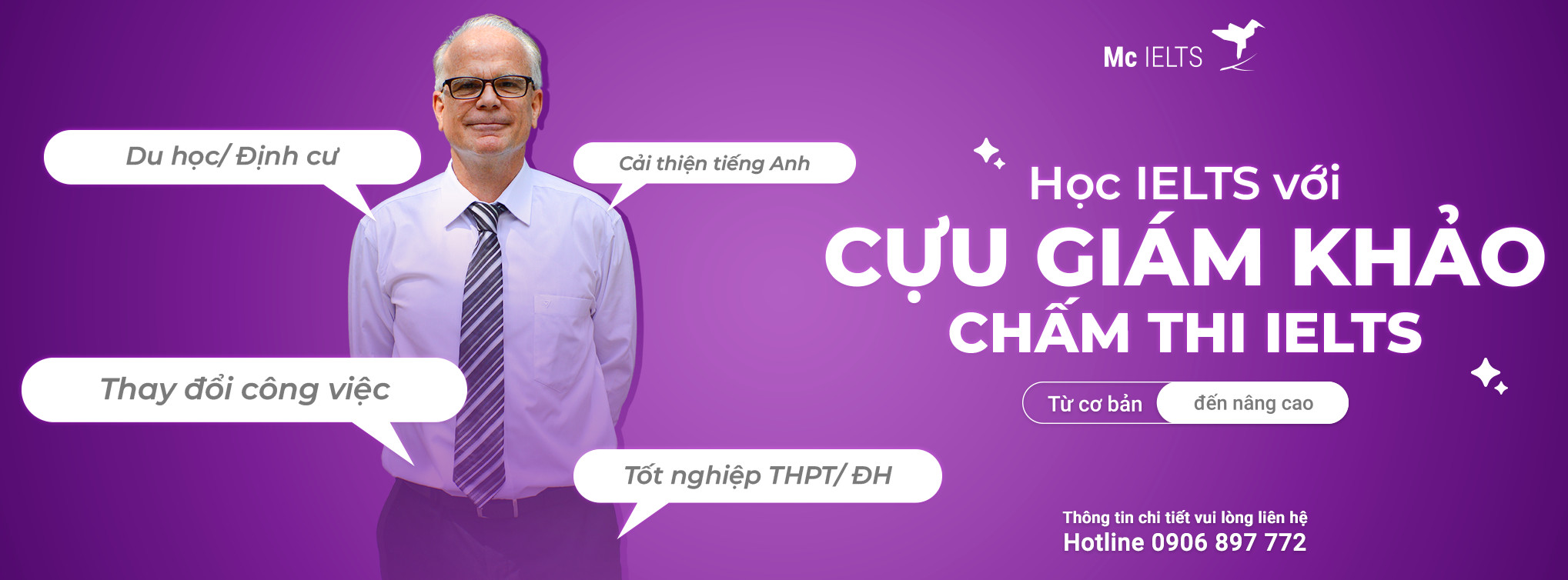
Học IELTS cùng Cựu giám khảo www.mcielts.com
Khi đăng ký học IELTS ở trung tâm Mc IELTS, bạn sẽ được hưởng những quyền lợi tuyệt vời:
- Tặng thêm 6 buổi học 1-1 hàng tuần với cố vấn học tập: Để bạn có thể giải đáp mọi thắc mắc và tăng cường luyện tập cá nhân.
- Học lại MIỄN PHÍ nếu không đạt điểm lên lớp: Bạn không cần lo lắng về chi phí khi phải học lại.
- Tham gia nhóm trao đổi Online trên Facebook: Với sự tham gia của cựu giám khảo IELTS, bạn sẽ nhận được những lời khuyên quý báu và phản hồi chi tiết.
- Kho tài liệu IELTS Online phong phú: Hơn 50 đầu sách đa dạng và bổ ích giúp bạn tự học hiệu quả.
- Hỗ trợ học bù và bảo lưu trong quá trình học: Đảm bảo bạn không bỏ lỡ bất kỳ bài học quan trọng nào.
Chất lượng giảng dạy tại Mc IELTS đã được khẳng định qua hơn 1000 đánh giá xuất sắc từ học viên:
- Đánh giá 4.9/5.0 trên Facebook, xem chi tiết tại đây.
- Đánh giá 4.9/5.0 trên Google, xem chi tiết tại đây.
- Đánh giá 9.2/10 trên Edu2review, xem chi tiết tại đây.

Những con số biết nói
Đặc biệt, Mc IELTS còn cung cấp dịch vụ sửa bài miễn phí Writing và Speaking trong nhóm Facebook với sự tham gia của cựu giám khảo IELTS. Đây là cơ hội tuyệt vời để bạn nhận được những phản hồi chi tiết và cải thiện kỹ năng của mình một cách hiệu quả. Tham gia nhóm tại đây.

Tham gia nhóm Facebook của Mc IELTS để được cựu giám khảo chấm chữa bài Speaking và Writing hoàn toàn miễn phí
Qua những câu trả lời mẫu và từ vựng chi tiết trong bài viết này, Mc IELTS hy vọng rằng bạn đã có thêm kiến thức và sự tự tin để đối mặt với chủ đề An Important Rule in Your School or Workplace trong phần thi IELTS Speaking Part 2&3.
Để đạt kết quả tốt nhất trong phần thi Speaking, hãy tham gia các khóa học tại Mc IELTS. Với đội ngũ giảng viên là những cựu giám khảo chấm thi IELTS, Mc IELTS sẽ giúp bạn nâng cao kỹ năng và tự tin chinh phục kỳ thi IELTS. ĐĂNG KÝ NGAY hôm nay để nhận được sự hỗ trợ tốt nhất và chuẩn bị vững chắc cho kỳ thi của bạn.
Nhận lộ trình IELTS TỐI ƯU theo yêu cầu








